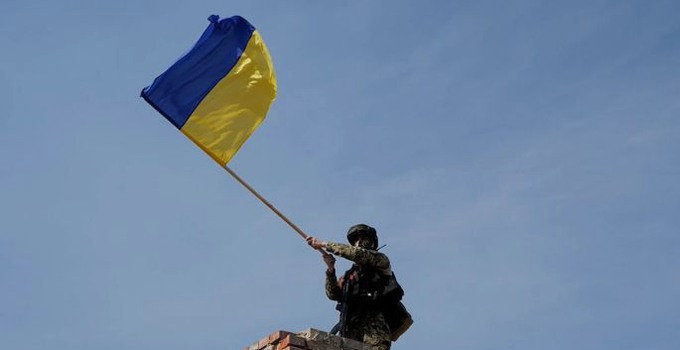
Photo: Vidimamax/Pond5
Spotlight on the resilience of fighting power in the Russia-Ukraine war
In a new book, Viktoriya Fedorchak provides an analysis of the Russia-Ukraine war, using the concept of fighting power to assess the operational performance of both sides during the first year of the full-scale invasion.
In the book The Russia-Ukraine war towards the resilient fighting power, Associate Senior Lecturer Viktoriya Fedorchak delves into the first year of the Russia-Ukraine war, exploring various dimensions through the lens of fighting power. This concept, also called combat or military effectiveness, refers to the ability of a military unit to achieve its objectives in battle or warfare. It encompasses a wide range of factors, such as morale, leadership, training and equipment.
"I focus on the resilience aspect of the fighting power – namely how do you build resilience in a military unit, using the example of the Russian invasion of Ukraine."
Resilience during different stages of the war
The book provides empirical examples of how the two fighting sides viewed resilience and how they sustained or regained the ability to fight at different stages. It also discusses conceptual frameworks and contemporary themes within warfare, security, and strategic studies.
"It is a systematic piece that can provide a better understanding of the war", says Viktoriya Fedorchak.
One chapter provides the historical context, by exploring Soviet history of the two countries. This is followed by a discussion about how Russia and Ukraine developed their strategic thinking.
"I also explore different domains of warfare – land, air, maritime, cyber and information warfare. Furthermore, I write about the resilience of the Ukrainian people and the role of the civil society in supporting military efforts and sustaining other functionalities in the society during the war."
The Ukrainian people were the core of the resilience
Key takeaways from the war are also discussed, examining factors contributing to the resilience of fighting power and to civil and military resilience.
"The main conclusion is that the core of building resilient fighting power, especially in the case of Ukraine, was the people. They were the ones compensating for shortfalls in equipment and were the driving force behind the will to fight."
Based on sources in different languages
The research behind the book is based on primary sources, including open sources such as interviews that were available online, official statements, national strategies, and military doctrines, as well as secondary academic sources.
"The objective was to combine primary sources in different languages. Especially from Ukrainian sources which were underrepresented in Western analyses. I also felt it was important to provide a systematic analysis of the first year of the full-scale invasion across various military domains."
Fedorchak hopes that the book will be of interest not only for military professionals and scholars within the field of war studies, but also for a broader audience.
"It's a book for anyone who is interested in the Russian-Ukrainian war. I believe it holds relevance for experts and civil entities alike, including grass roots initiatives. For instance, in the chapter on the resilience of the Ukrainian people, I explore civil-military cooperation and crisis management strategies – lessons that could be useful for example in the development of the comprehensive defense in Sweden."
Josefin Svensson
Publication
Viktoriya Fedorchak (2024): The Russia-Ukraine war towards resilient fighting power
More about
War StudiesPage information
- Published:
- 2024-02-22
- Last updated:
- 2024-03-08
